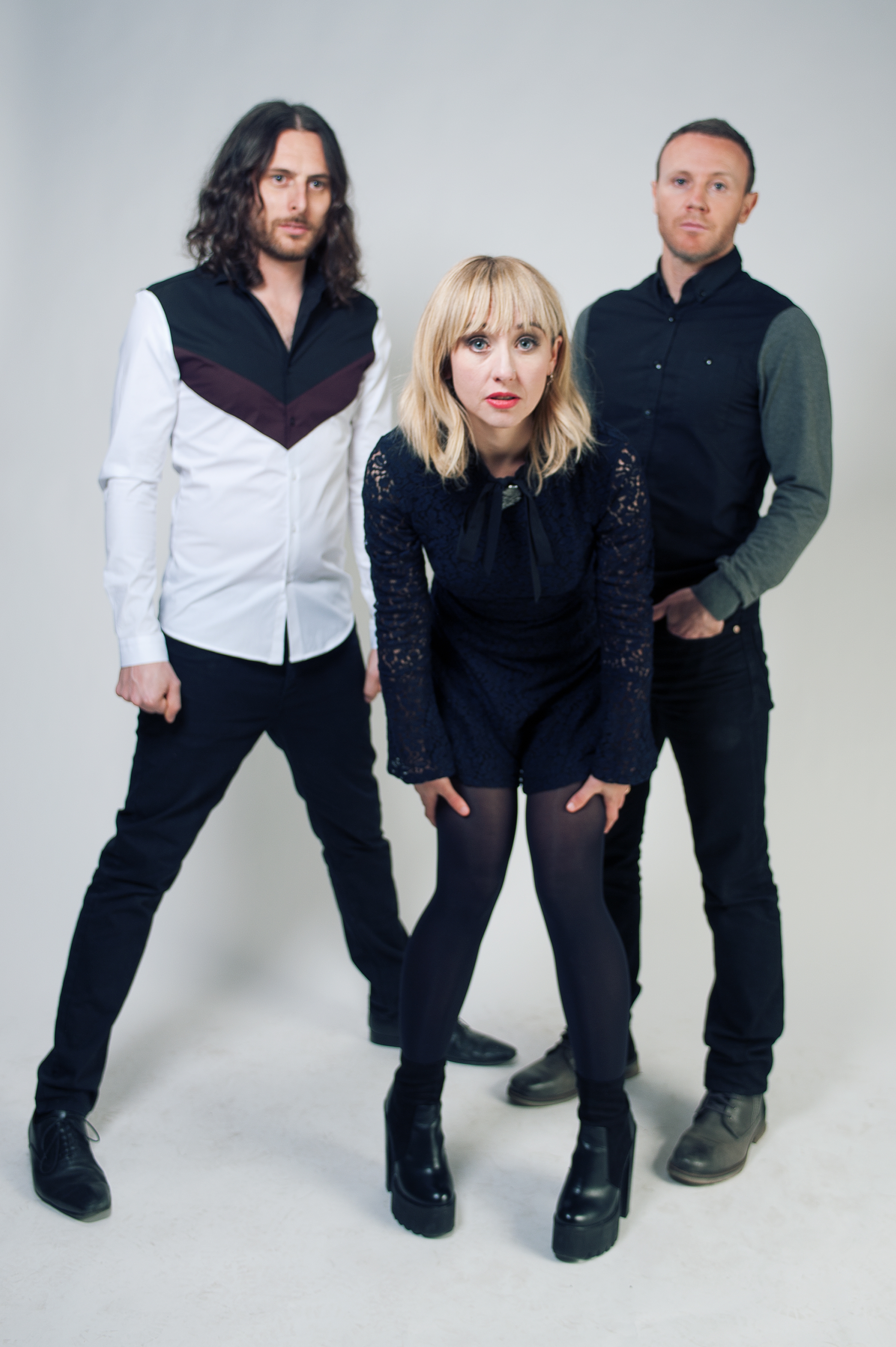Burnout typically comes at the end of the creative process. Ritzy Bryan says she couldn't even think of creating without first working through the mental and emotional weight at the thought of new music.
Bryan, the lead singer and guitarist for The Joy Formidable, says the feeling was mutual among everyone in the band—although her colleagues Rhydian Dafydd and Matthew James Thomas were far more eager to strike up the band in an attempt to exorcise the creative demons. The initial process was "quite frightening," she admits, but from there, the band's creative juices too over and the songs began to roll forward.
The band's fourth studio album might be their best work yet. Aaarth is expansive and inventive. "I found you so I was never bored," sings Bryan on "Dance of the Lotus," and every listener to the Joy Formidable would nod in agreement. The trio's emotional synth rock is perfectly adorned with thoughtful layers and courageous accoutrements.
If you've ever been excited by The Joy Formidable's first three albums, you're going to love Aaarth. It's the end result of a band discovering, once again, their love for the music, the fans, and the craft. The industry might get in the way, but Bryan and company have learned the hard way that it's worth the effort.
Analogue: Albums that chart in multiple countries. Critical acclaim. Headlining tours of your own and you just had the Foo Fighters run. From the outside looking in, the trajectory for the band looks incredible. Does it feel magical when you're inside?
Ritzy: I think the musical side of it has consistently been something really precious and beautiful between the three of us—seeing the evolution of the music and our friendship and the way that, with each new record, we seem to discover something new in each other. As members of this band, I think that has been kind of the thing that we’ve always turned to. That’s the thing that’s powered us on throughout the 10 years we’ve been together.
I won’t lie, it can be a really kind of cruel industry.
The rest of the shit sometimes makes me want to just... you just have to buckle up, because some of it is just out of your control. I won’t lie, it can be a really kind of cruel industry. We knew that when we were getting into it, because we’re not stupid. But I think we always keep what it was that made us into this—that love and passion for creating, to keep making recordings, to keep going out there. That’s the thing that I hold very dear. I’m glad that that hasn’t escaped me at certain moments.
Analogue: Have you learned some things about how to protect that instinct?
Ritzy Bryan: I think it’s been an interesting time for that, because at the very beginning of making this record, I honestly felt that I’d lost it a little bit—all the beauty of making it. It’s the first time I felt like walking away a little bit. It wasn’t coming naturally. I kind of felt like maybe some things that were happening, along with some things that happened on the last record, seeing the strain on all three of us. It's what life deals you.
I think I’ve always turned to making music and writing—that has been a constant in my life. I could feel that all of a sudden that wasn’t there. It was kind of a peculiar, shaky moment. There was a little crossroad at the beginning of this record about whether or not we just needed to step away a little bit. I was becoming very fearful that the glue that had always kept us together maybe needed a little bit of time to come back.
We were quite bold with our decision. We said, 'Well, we’ll go to the studio. We’ve got some things that we could start working on. Let’s give it a couple of weeks and see what happens, and if it feels too emotional or if it doesn’t feel like it’s bringing us together, then we’ll reflect and maybe step away for a little bit.' That was quite frightening, kind of starting off like that. But once we got going, we realized we still had a lot to say, and things started to come back. I feel like they came back even more earnest and special again than they maybe had previously.
So yeah, you just have to kind of sometimes take a little bit of a leap, and I’m glad that we did with this record.


